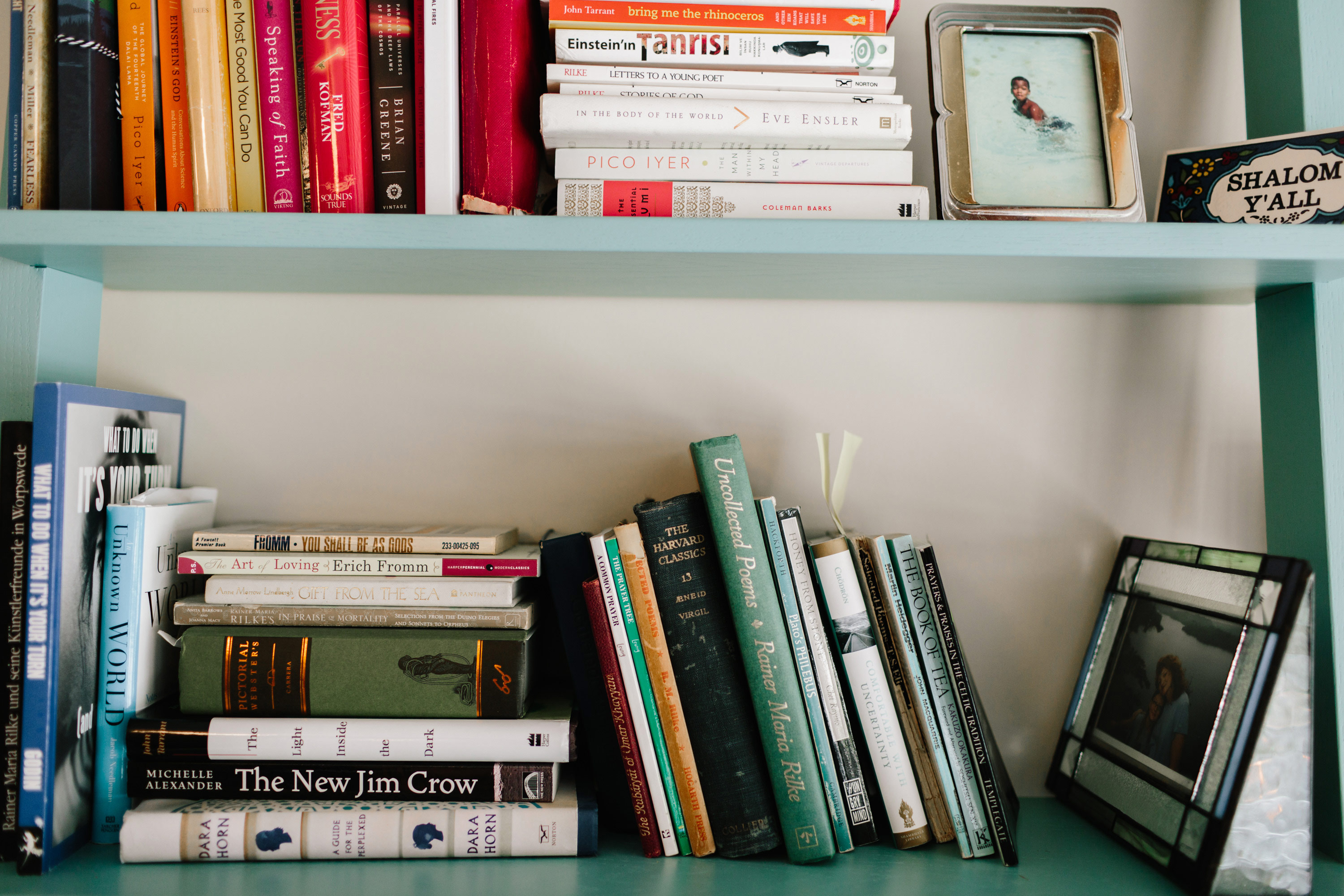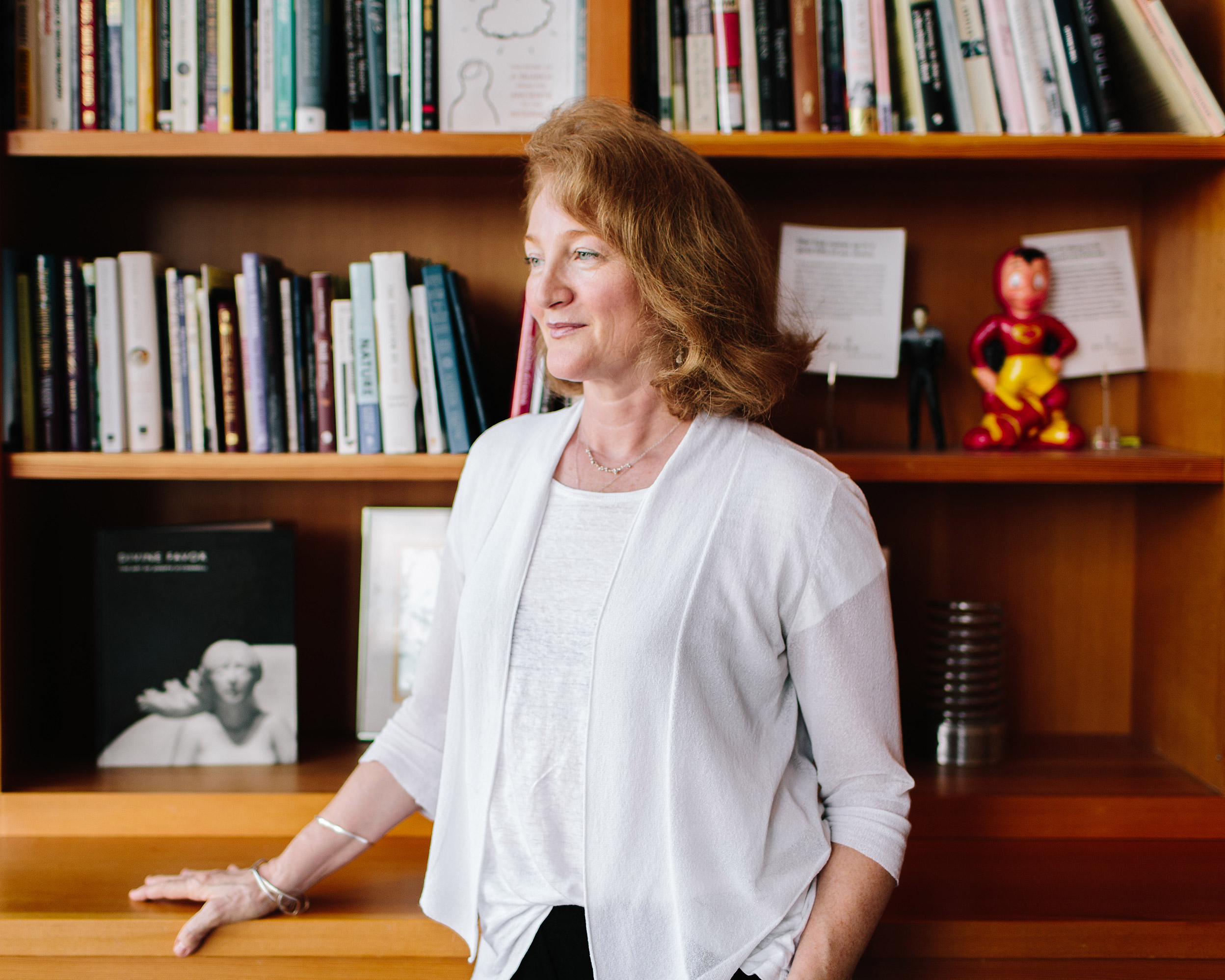
- Interview by Tina Essmaker September 6, 2016
- Photography by Colleen Eversman
Krista Tippett
- author
- broadcaster
Peabody Award-winning broadcaster and New York Times best-selling author, Krista Tippett, reflects on how her early years in Oklahoma shaped her future, what initially drew her to radio after working as a print journalist and news correspondent, the impetus behind her new book, Becoming Wise, and the most important work that any of us can do right now.
I want to dive in at the beginning of your story. In your bio on the On Being site, it’s noted that you grew up as the granddaughter of a Southern Baptist preacher, which tells me there’s significance in that. How did your childhood in Oklahoma shape your future? My grandfather, the Southern Baptist preacher, was an important, dominant influence. What I’ve realized as I’ve grown older is how his contradictions formed me as much as his clarity did. His religiosity was very much about fixed ideas and rules, and it was mostly about what you could get wrong. I think my grandfather had a large mind, but he only had a second grade education. Questions and the life of the mind not only didn’t have a place in the religious culture he was part of, but they were also suspect and somehow frightening, as was the body.
I’ve reflected on that as I’ve evolved my work and my own approach to life, and a spiritual life. For me, it’s all about the animating questions as much as the truth we’re discerning. Culturally, I think that one of the great frontiers we’re on is to put ourselves back together and become more complete again. Science is revealing the divisions we saw among body, mind, and spirit as artificial constructions. So, there’s a way in which I was formed by my grandfather and a way in which I’m taking delight in an inquiry that he wouldn’t have been able to imagine as possible, or as thrilling and healing as it has been for me.
I recently listened to the On Being episode with author Elizabeth Gilbert, which was incredible. I loved how you talked about creativity as a part of everyone’s childhood, but not in the way we think of it. It’s a curiosity that we explore, but as we grow older we learn that maybe it’s wrong or it’s not for us. How was creativity, or curiosity, a part of your childhood? I was very curious, but my curiosity didn’t have places to go. Creativity was something that I was fascinated by, but I was very much in the category that Liz and I discussed. I thought certain kinds of people were creative and certain activities were creative. I wasn’t an artist in a technical sense, but I longed to be creative. One of the things I’ve lived into is a spacious understanding of what it means to live a creative life and to be a creative person. In that conversation with Liz Gilbert, she put words around that in a very special way.
You’ve lived multiple lives in your career and have done some fascinating things. For our readers who aren’t familiar with your backstory, will you tell us how your path led you to start your radio show, On Being, which was originally called Speaking of Faith? I would start with this religious background of childhood that we’ve already touched on. I grew up in an immersive American religious culture and then had a very common trajectory. I left home and left religion behind because it didn’t feel interesting or relevant. I became fascinated with politics, geopolitics, and the Cold War divisions of the world at that time. I believed that the interesting questions and solutions were in that sphere. I was very idealistic. I wanted to save the world, and I thought you did it with that kind of political power and change.
Through a combination of sticking my neck out and being in the right place at the right time, I went to East Germany and divided Berlin in the 1980s when we were only a handful of years away from that part of the world completely changing. The East Germany that I inhabited is now a vanished place in many ways, but no one would have guessed that. That in itself is a fascinating thing to have lived through—to understand how, at any given moment, there is more change possible than we can begin to imagine. That forms the way I move through the world.
Those were interesting years. Things had started to shift below the surface. Politically and sociologically it was interesting, but on a human level, it was confusing in ways that started to shape me. It was a vast social experiment. I began to see this spiritual truth embodied: We are not defined by the material circumstances of our lives. We have great power to craft that. I knew people on the Eastern side of the Wall who had nothing and created lives of great beauty, dignity, and intimacy. I knew people on the Western side of the Wall who had everything and had superficial, empty lives.
That observation and feeling unsettled about the moral emptiness of the level of geopolitics I worked in set me down the path of asking spiritual questions and questions of meaning again—but it was a long time before I called them spiritual questions. I needed to know that my mind could be involved and that the complexity of the world could be addressed. That was the path that ultimately led me to go to divinity school to learn to think theologically, to test the question of whether or not the life of the mind could have its place in spirituality.
I came out of that experience with the eyes of a journalist. I saw that we had a primitive vocabulary to discuss or shine a light on the nuance and fluidity of this part of life that we call religious and spiritual. That was the seed of the idea for the radio show.
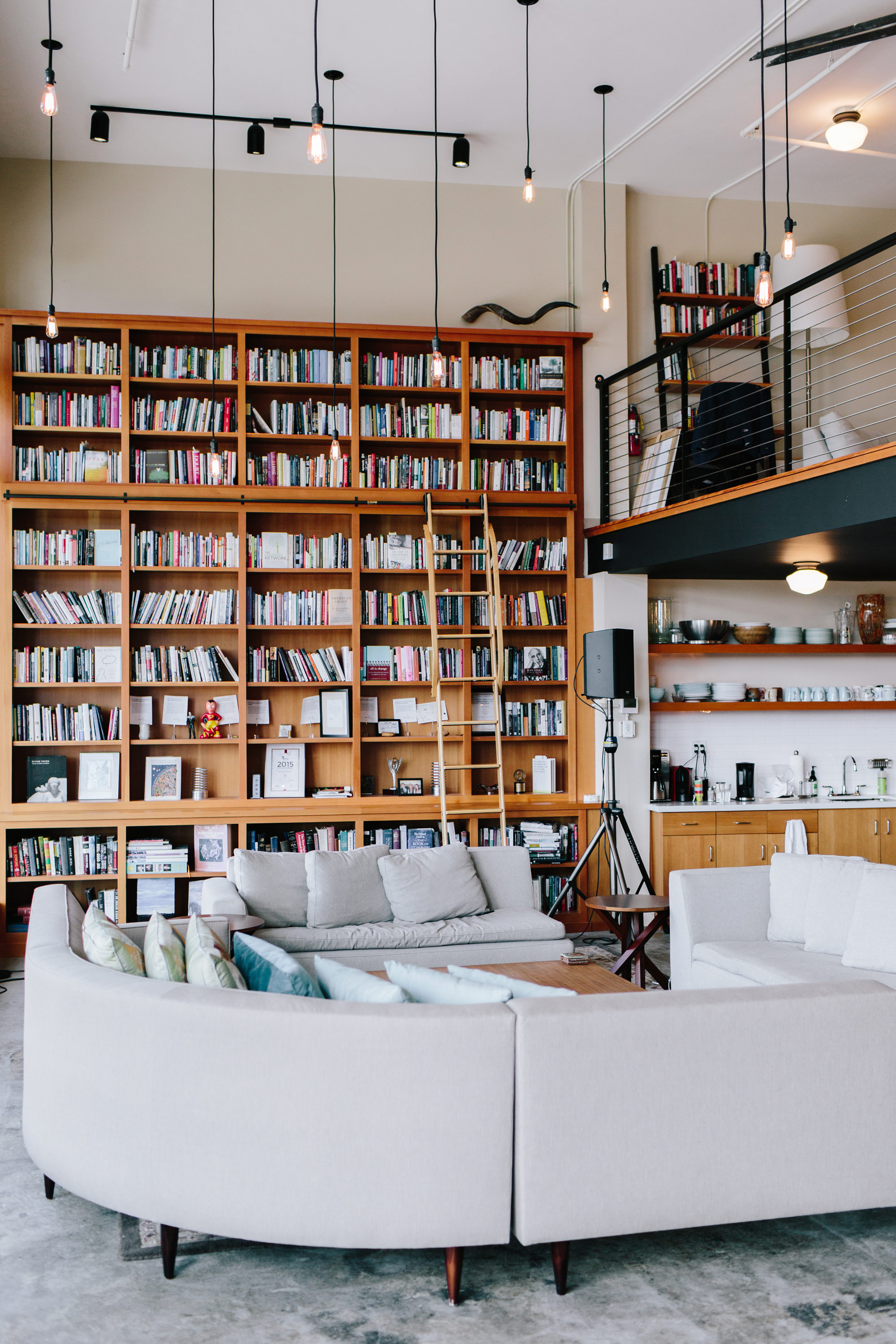
“I saw that we had a primitive vocabulary to discuss or shine a light on the nuance and fluidity of this part of life that we call religious and spiritual. That was the seed of the idea for [On Being].”
What in particular struck you to make a radio show after you had already been a print journalist and news correspondent? Well, in some ways it’s the fact that I personally grew to love radio, especially during my years in Europe. It was more ever-present in Europe than here in the US. I fell in love with BBC Radio 4, the internal service in England. That station was a news talk station, and because it’s a smaller country and because of the BBC’s centrality in that culture, there was something like a national discourse that happened. There was a common reference point for real, intelligent conversation and reflection.
Then I came back to the US and really loved public radio, which was taking off in a new way. I don’t know—it was always the place I was looking. Podcasting hadn’t been invented yet, but I felt like radio was a medium in which we should be able to take on topics with intelligence and a commitment to exploring nuance and complexity in a way that is balanced and inviting. I thought it was worth a try to see if we could create a program that opened up imaginations and revealed the intellectual and spiritual content of this part of life rather than being simplistic and inflammatory and shutting imaginations down, which was what almost everything about religion did in the 1990s.
You started your show in the early 2000s. It’s easy to look back now and say, “Of course it was successful. Of course it was going to resonate because there was nothing out there like it.” But, at the time, did you experience resistance? And how did you persist to make the show a reality—what compelled you to moved forward? Oh, I had to fight so hard. When you ask what compelled me to move forward, I’m kind of amazed at how persistent I was when I look back. I felt like the show needed to happen and I was energized by the fight a little bit, too.
And then the world kept changing. Our whole cultural encounter with this part of life has rapidly evolved. On one hand, people claim less and less firm identities around this part of life. On the other hand, we have all these resources to open up the traditions and spiritual practices of the ages. I do think that there’s a real insistence in creating a life in which you join your inner and outer presence in the world, especially in emerging generations. That is possible as never before.
As a media project, we’ve always listened to the culture. Somehow it was always so fascinating and felt increasingly important to cover this part of life and push it forward. There were always a few people who got it. (laughing) It was only a few years ago that I felt like, “I’m not a fighter anymore, and I don’t need to be a fighter,” and that’s actually been an important move for me to make.
“We have a very condensed and skewed sense of time in America. We think things should happen immediately and they don’t. Every overnight success took twenty years to get going.”
That’s encouraging to hear. We’ve been doing TGD for five years this month. In some ways, it feels like we’ve been doing the project much longer, and in other ways, it feels like we’ve just begun. These things take longer than we think. We have a very condensed and skewed sense of time in America. We think things should happen immediately and they don’t. Every overnight success took twenty years to get going.
So many people have said that same thing to me. I agree. So, did you have any influential mentors or people who helped you resource-wise to get your show off the ground, or did you learn by trial and error? I had friends and people who were funders early on because they believed in the importance of the show, but I didn’t have a lot of mentoring in media.
When you do something that nobody has ever quite done before, you think people will be excited and curious about it, but that’s not the way the world works. When you do something that no one has done, it’s unfamiliar. There are a lot of people who react negatively to the unfamiliar because that’s not the way it’s done. You just have to persevere.
What I did understand and have empathy for in the beginning is the idea that it is possible to put deeply religious voices and people who talk about spiritual truths on air and have it not be proselytizing, inflammatory, or exclusionary. People didn’t believe me because there were no models and it was hard to imagine how that would work, so we had to demonstrate it.
On your show, you’ve created a safe space to ask tough questions that explore spirituality and the human life. It seems like you’ve found your voice and your contribution. Was that a conscious finding, was it accidental, or was it you becoming in tune with what was already inside of you? I think this is such an important question. Here’s something I’m painfully aware of when I have this conversation with people. My résumé, my recital of what I’ve done, sounds so purposeful, right? It sounds like I had this vision and walked this clear path. It so did not feel that way. In my 20s, I was in divided Berlin doing amazing things, but I constantly second-guessed myself. I laid awake at night asking if I should be back in the US because that’s where what I did would matter. Now I’m so glad I hung on because I had experiences I would never—and could never—have again.
I love to talk to Millennials and people in their 20s. One thing I say to them is that if I could go back and do one thing differently, it would be knowing how to take pleasure. I would try not to be so restless or so hard on myself and I’d take pleasure in what I did and let that be good enough.
The one thing I would credit my younger self with is frequently throwing myself into improbable situations. I’m not sure where that comes from, but it was so much about persevering. Honestly, it’s about being practical as well as visionary. Because there were so many skeptics around this radio show in the beginning, I raised all of the money and continue to raise all of the money, which is very unusual for a host of this kind of project to do. I did it because if I hadn’t, this project wouldn’t have been safe. No matter how good the show is it wouldn’t have happened if I had not done that practical legwork.
“When you do something that nobody has ever quite done before, you think people will be excited and curious about it, but that’s not the way the world works…There are a lot of people who react negatively to the unfamiliar because that’s not the way it’s done. You just have to persevere.”
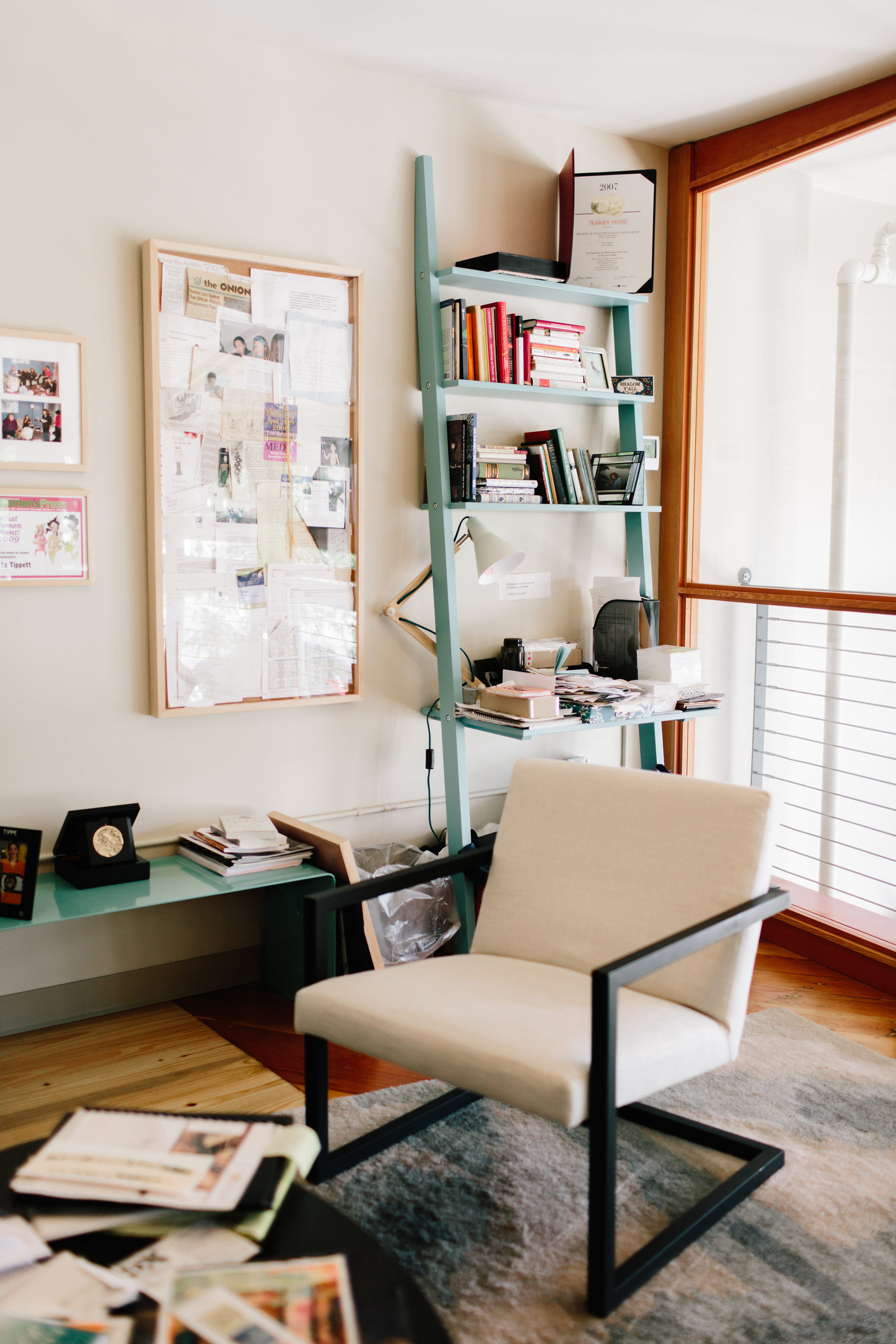
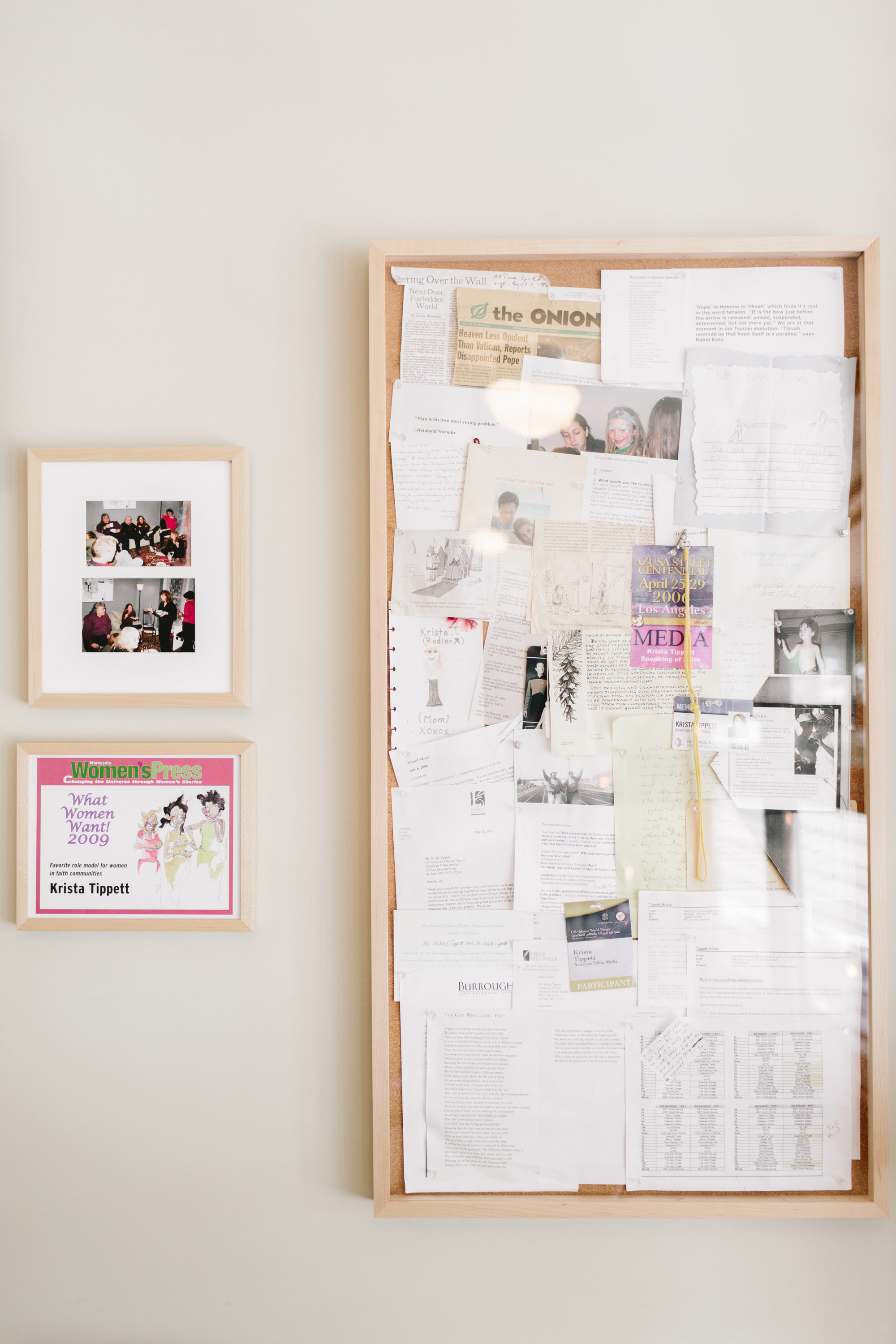
What I also want to say to your question is that I worry because I think people kind of romanticize my job. I am very fortunate to have this work and this project that is overtly meaningful—it is all about meaning-making. But my job, like every job, is a job. The part of it where I have beautiful one-on-one conversations is a very small portion of my day.
I worry about our focus on meaningful work. I think that’s possible for some of us, but I don’t want us to locate the meaningfulness of our lives in our work. I think that was a 20th-Century trap. I’m very committed and fond of the language of vocation, which I think became narrowly tied to our job titles in the 20th Century. Our vocations or callings as human beings may be located in our job descriptions, but they may also be located in how we are present to whatever it is we do. It may be that your job at any given point is to make the income to feed your family. That is noble, too.
Ironically, I think the jobs that look most overtly meaningful have as much drama and exhaustion and risk of betraying the essence of the thing as anything else. I also think our vocations shift across time. For many of us, there’s a time in our lives where our parenting is more essential to our humanity than what we are doing between 9am and 5pm. I realize I’m in a privileged position to say these things, but I really do believe them. I want your readers who are asking these questions to take a serious sweep of their lives and not only what they’re doing, but how they’re doing it as they work out that question.
Maybe there’s so much pressure to find meaning in our jobs because we work so much, and that leaves us feeling guilty if we fail to find meaning in our work? But I do think it’s vital to remember that we offer value outside of work. We put so much weight on the question, “What do you do?” It’s a terrible opening line. Vocation is as much about who you are and how you are, whatever you’re doing. And now with the economy, the deck has been reshuffled. The idea that everybody graduates from college and gets the perfect job was always an illusion, but there was a basic faith in it. Now the ground has fallen out from under that illusion. The good thing is that this can ground us in reality, and that’s painful sometimes, too.
Let’s shift and talk about your new book, Becoming Wise, which is out now. Tell me about it. The book emerged from a question I’ve asked since I first began the show: What are the recurring themes and qualities of lives full of beauty and wisdom? That’s how I started to trace it. As I really wrapped my arms around this cumulative conversation from the past 12 years, what became important to me is wisdom that’s not only a quality of saints and very special people, but accessible in any life. The basic elements of our lives are the raw materials of wisdom.
Initially, I had a grand vision of chapters with poetic titles, but I chose to focus on five elements of living that we all experience: words, our bodies, faith, hope, and love. My conversation with far-flung people of wisdom in many disciplines—some very famous and some who I call spiritual geniuses of the everyday—have opened up and reframed my imagination around these basic elements of life and how we can inhabit them to become wise, which is the work of a lifetime.
The word becoming is as important as the word wise because it’s not a destination—it’s a process, and it’s a process in which we need each other. That is an un-American thing to abide by, but I think a lot about the great animating questions behind philosophy and religion: What does it mean to be human, and how do we want to live? For us in the 21st Century, that question is inextricable from the question of who we are to each other. Becoming Wise is not just about a personal accomplishment. It’s about the quality of the imprint you make on the lives around you.
Throughout all of the conversations you’ve had over the years, what is the biggest revelation you’ve had about the human condition? Oh, I always do poorly with questions about the biggest or the best.
How about one revelation that comes to mind? Maybe what I just said is as important a place to start as any. I think that I grew up like many Americans with a sense of spiritual life as something that’s private and individual—you work on yourself. Working on yourself is hugely important, and I think it’s a prerequisite to live into the great spiritual aspirations of humanity. I don’t think you can be a great Christian or Jew or Buddhist without that inner work. But it’s the dance, the enlivening interplay between inner life and outer presence in the world that gives this part of life its power not only to change us, but to shape and be of service to the world around us.
Have you had any interesting insights about yourself throughout the conversations and experiences you’ve had? Oh, yeah. (laughing) I have an insight about myself every time I have an interview. Let me say it this way. One of the chapters of the book that I never would have imagined I’d write when I started was the chapter about the body. That’s been a real revelation to me that spiritual life is as much about how we inhabit our bodies as it is about ideas.
The religious world I grew up in was so immersive in some ways, but so cerebral and at odds with our physical selves. There is a move in Western civilization, even in the secular world, to say, “I think therefore I am.” Our bodies are messy and they get us in trouble, but what I’m also very aware of now that I wasn’t many years ago is that our bodies remind us that we are soft, fallible, flawed, and that we need other people. We need to tune into the truths of our bodies. There’s no such thing as an emotion that’s not physical or a physical symptom that doesn’t have emotional input—this is something we’re learning and science has proven it. I’m no longer interested in anything that is merely spiritual.
“The word becoming is as important as the word wise because it’s not a destination—it’s a process, and it’s a process in which we need each other…Becoming Wise is not just about a personal accomplishment. It’s about the quality of the imprint you make on the lives around you.”
You talk about this idea of generous listening, which is so applicable to where we are in the state of our world right now. Many of us are shouting over each other, desperate to be heard. Tell me about this idea of generous listening and how we can apply it to our lives. First of all, I think we need to have awareness and even some forgiveness for ourselves and others because we’ve been trained to shout, right? We learn how to assert ourselves, raise our voices, have an argument, and stand up for what we believe in. Those all have their place and we need to be able to do them, but they aren’t all we need to be able to do.
One thing I think we have to do to reactivate listening as part of our life together, and even part of our political life together, is get less comfortable with the things that feel instinctive. If we take on a hard issue, we’re used to debating or taking a stand. If that’s the only thing we know how to do, then we’re not creating spaces where we’re just getting curious about people who make us uncomfortable and things that scare us.
I’m not saying we have to put ourselves in harm’s way. There are scary people and scary things, especially right now in our society, but we pay all of the attention to that end of the spectrum. Across that spectrum, there are those who are very different from us, who say things we don’t get and believe things we don’t understand, but who would be available to be in relationship with us if we could create trustworthy spaces for them to know that and for us to get curious in an attempt to understand.
We have so many divisions now and it feels like they keep sprouting, so understanding is a skill we need to figure out how to do. And it’s very practical. Brain science shows that even in very charged circumstances, people who feel like they’ve been heard are more likely to accept an outcome they don’t agree with. So this is very pragmatic. But I think on a human level, we will love ourselves more if we can learn to listen and understand.
I think there’s something in our brains that tells us that if we attempt to understand someone who has a different viewpoint, it’s almost like we’re admitting they could be right. That’s not true. Seeking to understand does not equal agreement. You’re right, and that gets in the way. It’s another way we’ve been trained to think. I’ve been talking a lot about how we think the point of a conversation is to reach an outcome. We have to let that go because we don’t understand enough and we don’t have enough information, which we can only get by being in a relationship and having a real conversation with others. We need to talk with people who are different from us. We don’t even know how to start doing that, but I think we know we must. Somehow we haven’t valued that, but we can have a debate because at the end, you call it and people take a side.
“…if I could go back and do one thing differently, it would be knowing how to take pleasure. I would try not to be so restless or so hard on myself and I’d take pleasure in what I did and let that be good enough.”
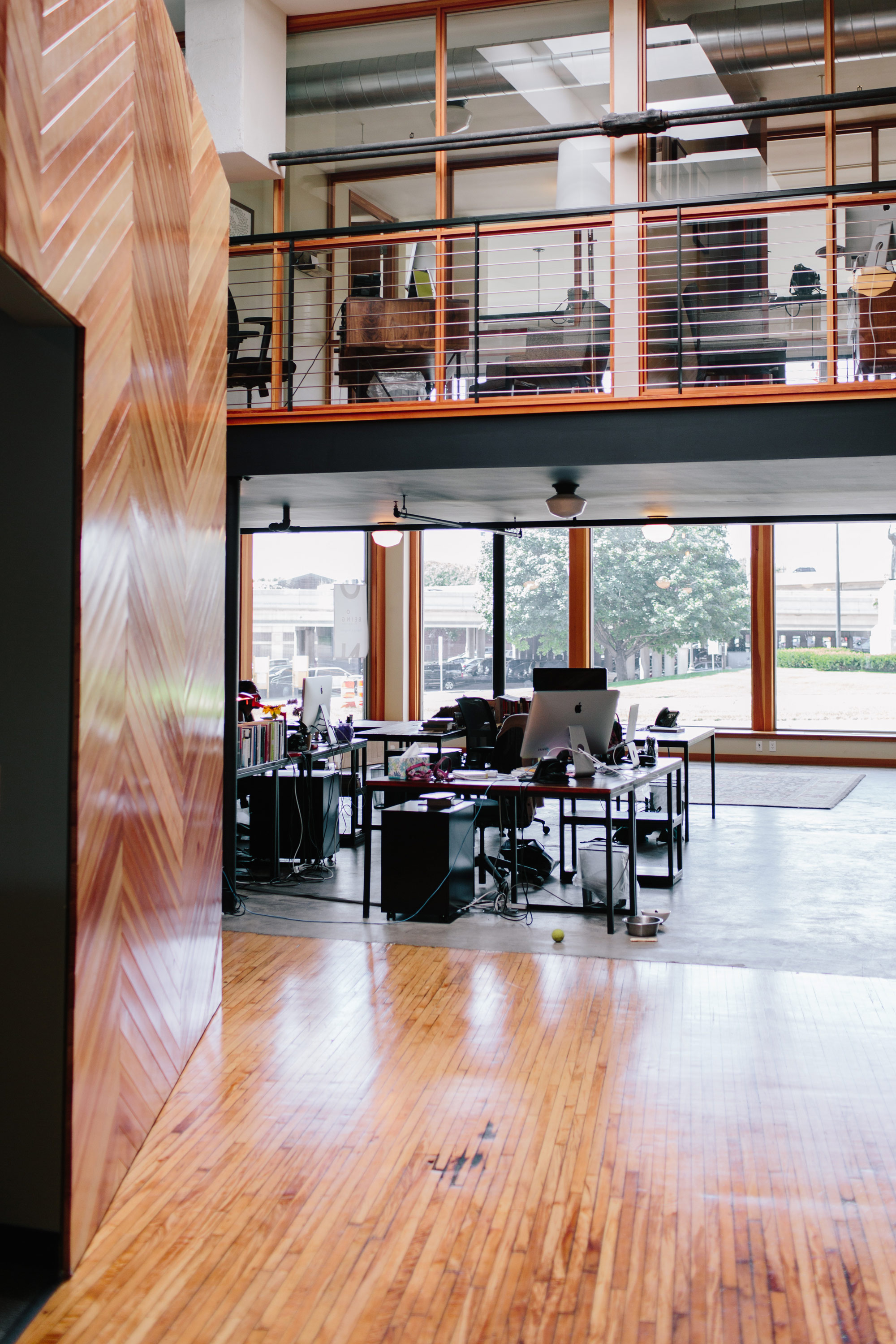
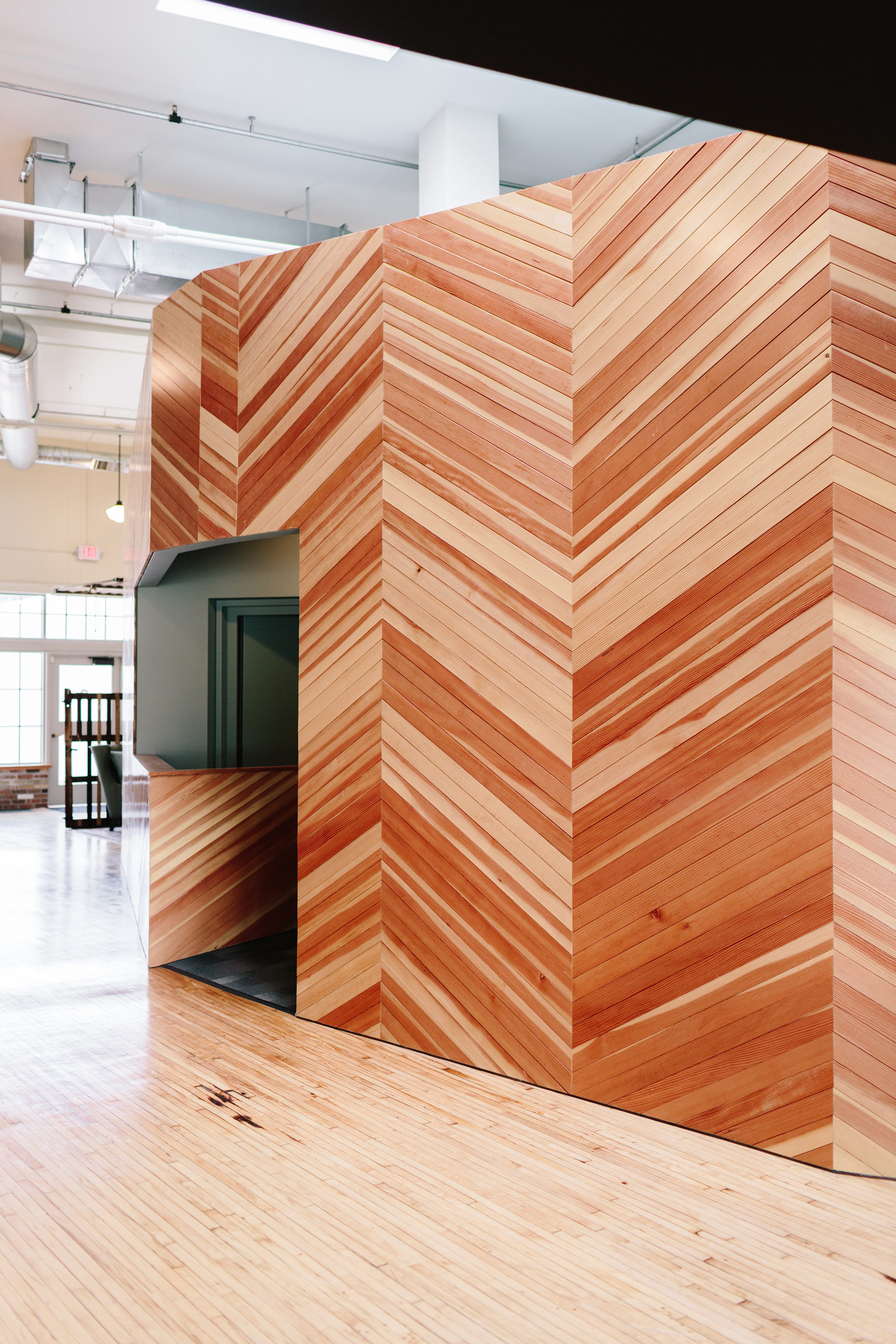
It’s a very clearly defined conversation, so it feels safe. It doesn’t play into the many fears we have. And fear is the operative word. Fear is becoming this powerful, powerful force in our collective life. The other thing I believe is that some of us right now, whoever we are, wherever we are, need to take on the vocation of just being calmers of fear. What does that mean? I don’t know what your job title is, but if you calm the fear of one person or create spaces in your community for something to be diffused, for some kind of encounter to be possible, that’s the most important work any of us can be doing right now.
I wholeheartedly agree. Alright, I have one last question for you. At one of our recent live podcast tapings, we asked our guests what their words for the year are. What is your word for 2016? Oh, I think the word for me would be love, which as I write in my book, Becoming Wise, is the most watered-down word in the English language. It’s an amazing word because no matter how much we water it down or make it superficial or cheesy, there’s only one way to say, “I love you.”
I say it’s my word of the year, too, because I think there’s something very paradoxical happening right now. We are acknowledging the reality of hate. Hate crimes are a legal category of crime, and in a paradoxical way that has opened a space where we are also reasserting the necessity and reasonability of love. I’ve seen that word used in public spaces as something that’s muscular, practical, and insistent. I’m fascinated by how I hear people use the word love, and not in a romantic way. There are people we know we need to love who we can’t get close enough to in order to feel anything. This love is an action, a way of doing. It’s a commitment to honor the stranger and take them seriously as a human being and insist that we share this world.
I love words. They’re a huge piece of who I am. I think we can excavate the word love. In other languages, there are words to describe the full array of what we do when we love. There’s the love of friendship and the fierce love a parent has for a child and the practical love of service, which is not about what you feel, but the kindness you extend. It can be very simple and practical. I think that in precisely the same moment we are rediscovering our destructive human capacities, the sense of our highest human calling as the only thing that’s big enough to meet that is also rising in us. I hope so much that this is an opening and that we walk through it.
“I don’t know what your job title is, but if you calm the fear of one person or create spaces in your community for something to be diffused, for some kind of encounter to be possible, that’s the most important work any of us can be doing right now.”
